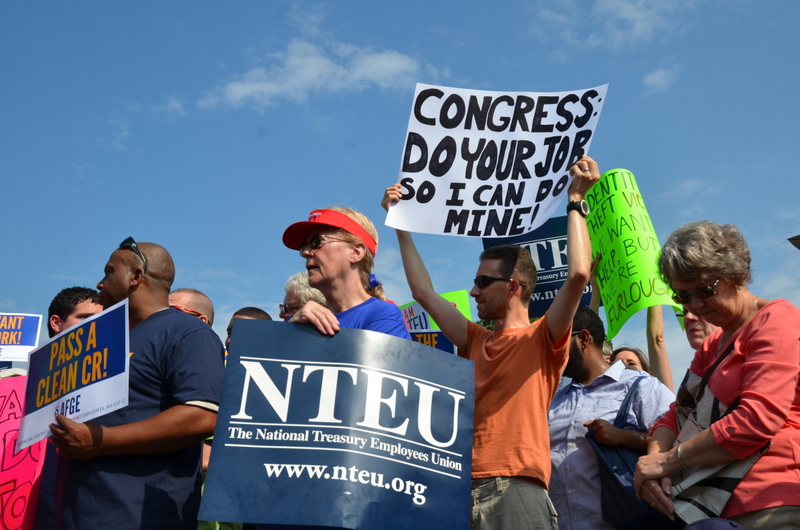
After 16 days of agonizing political brinkmanship that gripped the nation and left global financial markets in a state of panic, Congress passed an 11th-hour measure to reopen the federal government and save it from a historic loan default.
America and its lenders breathed a collective sigh of relief. Tea Party conservatives grumbled. Democrats patted themselves on the back – they had dug in their heels, refused to blink and, in their eyes, won the battle.
But the war rages on. The measure passed by Congress only funds the government through Jan. 15 and raises the debt ceiling until Feb. 7. The U.S. government is now $24 billion poorer. The ideological chasm dividing the House has only grown larger. Congress’ approval rating during the shutdown hit an all-time low: a measly 5 percent.
Deborah Schildkraut, professor of politics and political psychology at Tufts University, said when it comes to faith in their government, Americans have reached the end of their rope.
“This is not what we sent Congress there to do,” she said. “Most people think, ‘We need more jobs. Just fix it. We need better schools. Just fix it.’ So gridlock like this is unbelievably frustrating to them.”
Republicans came out of the ring bruised and limping; that much is certain. They had held the government ransom in an effort to weaken the Affordable Care Act, and they failed colossally. The measure eventually passed by Congress is virtually identical to the one proposed before the shutdown. Republicans were able to reinstate a requirement that people seeking ACA subsidies had to provide proof of qualification, but it’s a small victory considering the time, money and public approval they lost. Speaker of the House John Boehner emerged like an incompetent parent, unable to rein in his unruly rank-and-file.
Katie Prisco-Buxbaum, spokesperson for the Massachusetts Democratic Party, said Tea Party Republicans were recklessly hell-bent on destroying Obamacare, and for their failures, they have their own obstinacy to blame.
“They got so desperate that they were no longer able to be realistic,” she said. “At this point, Americans are completely fed up with the Tea Party approach.”
Rebecca Thorpe, assistant professor of political science at the University of Washington, said that if there was a winner in this political cage-match, it was the Democratic Party.
“At the end of the day,” she said, “the Democrats did not concede any major policy changes over the course of the shutdown. That’s a huge accomplishment. ”
But Democrats did not leave the fight unscathed. President Barack Obama, who started the year with an ambitious to-do list that included tighter gun control, immigration reform and climate change legislation, is now left with an exhausted and deeply divided Congress that is seemingly incapable of getting along.
Last Friday, hundreds of thousands of federal employees returned from furlough and got back to work. But even after all the chaos, the public outcry, the billions of dollars lost, House conservatives still aren’t finished trying to unravel the ACA.
In a statement last Wednesday, Speaker Boehner made it clear that Democrats will have no reprieve from Republican opposition to health care reform.
“Our drive to stop the train wreck that is Obama’s health care law will continue,” he said.
Emma McGrath
Journalism and International Affairs ’17



